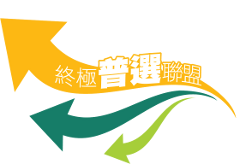This article needs additional citations for verification .(April 2010) |
終極普選聯盟 | |
 | |
| Successor | Alliance for True Democracy |
|---|---|
| Formation | January 2010 |
| Dissolved | January 2013 |
| Type | NGO |
| Purpose | To achieve full universal suffrage in Hong Kong |
Convenor | Fung Wai-wah |
| Affiliations | Pro-democracy camp |
| Alliance for Universal Suffrage | |||||||||
|---|---|---|---|---|---|---|---|---|---|
| Traditional Chinese | 終極普選聯盟 | ||||||||
| |||||||||
The Alliance for Universal Suffrage was a coalition formed by 11 pro-democracy parties and groups in Hong Kong. The Convenor of the Alliance was Fung Wai-wah.
Contents
It provided a single point of contact to interface with the governments of Hong Kong and China,especially to press for more democratic formulas for the Chief Executive election in 2017 and the Legco election in 2020.
The grouping is seen as more 'moderate' than the League of Social Democrats and the Civic Party,which have triggered Legco by-elections in May 2010,by having five of their members resign and stand for reelection in a 'de facto referendum' on democratic progress in Hong Kong. [1]
In June 2010,the central government accepted the reformed proposal suggested by the Democratic Party after negotiating with the Democratic Party and the alliance. The compromise made with Beijing was fiercely attacked by the radical faction of the pro-democracy camp,the League of Social Democrats.
In 2013,the Convenor Fung Wai-wah announced the alliance "will be indefinitely suspended" in order to form a new body with other pan-democrats on the matter of full universal suffrage. [2] In March,the new alliance the Alliance for True Democracy was launched.